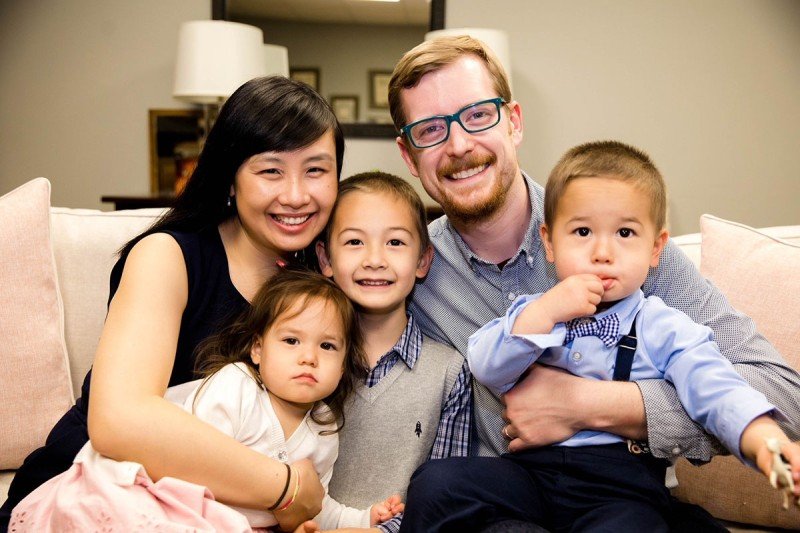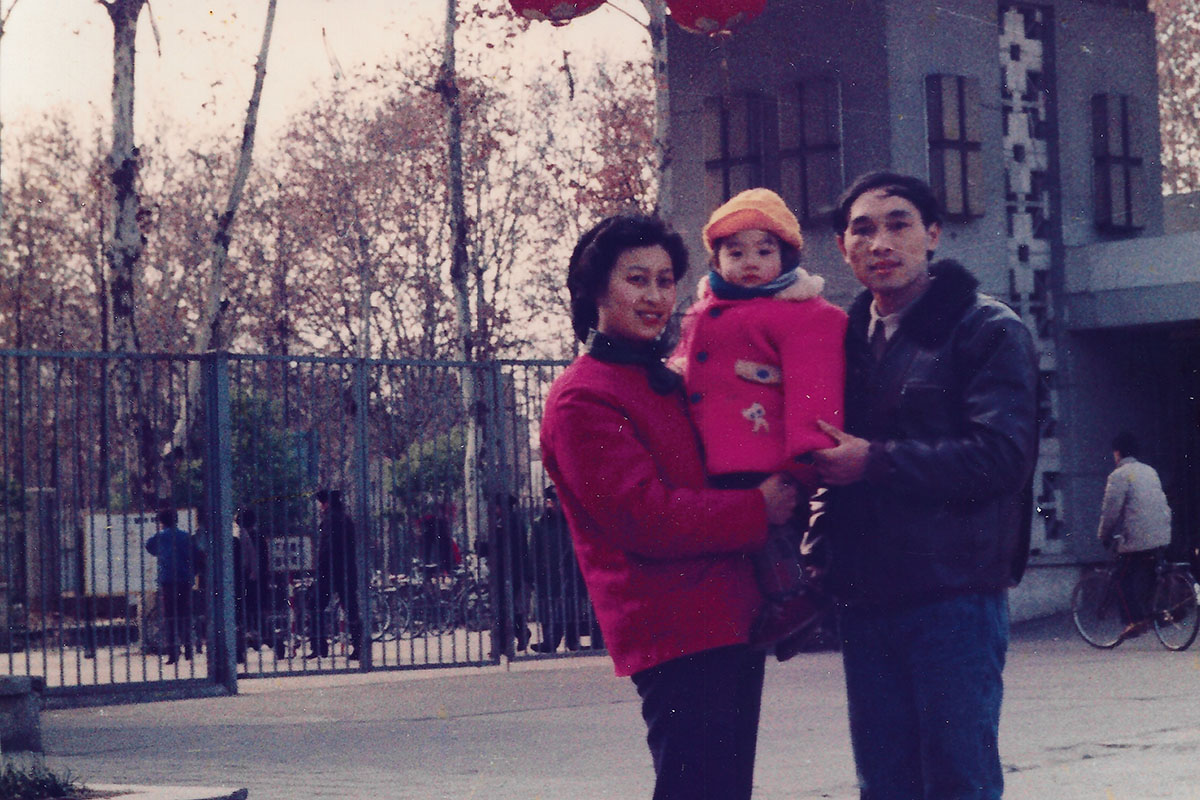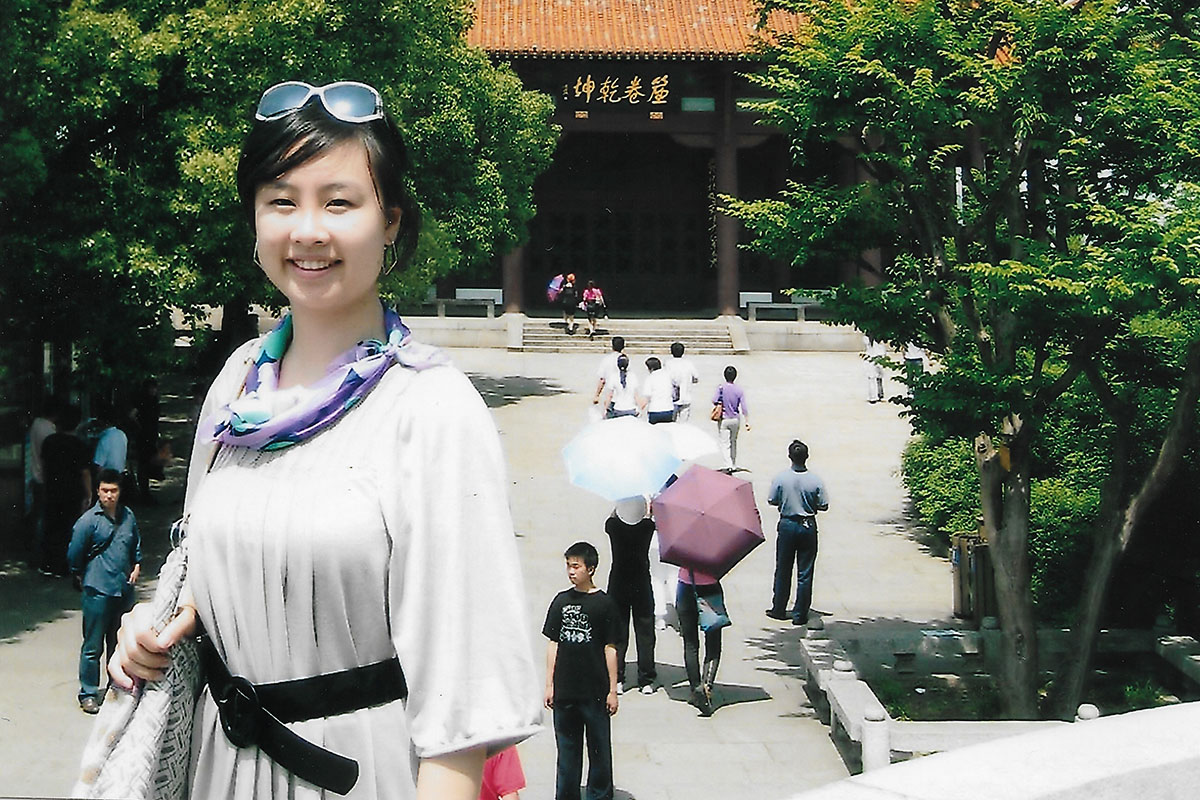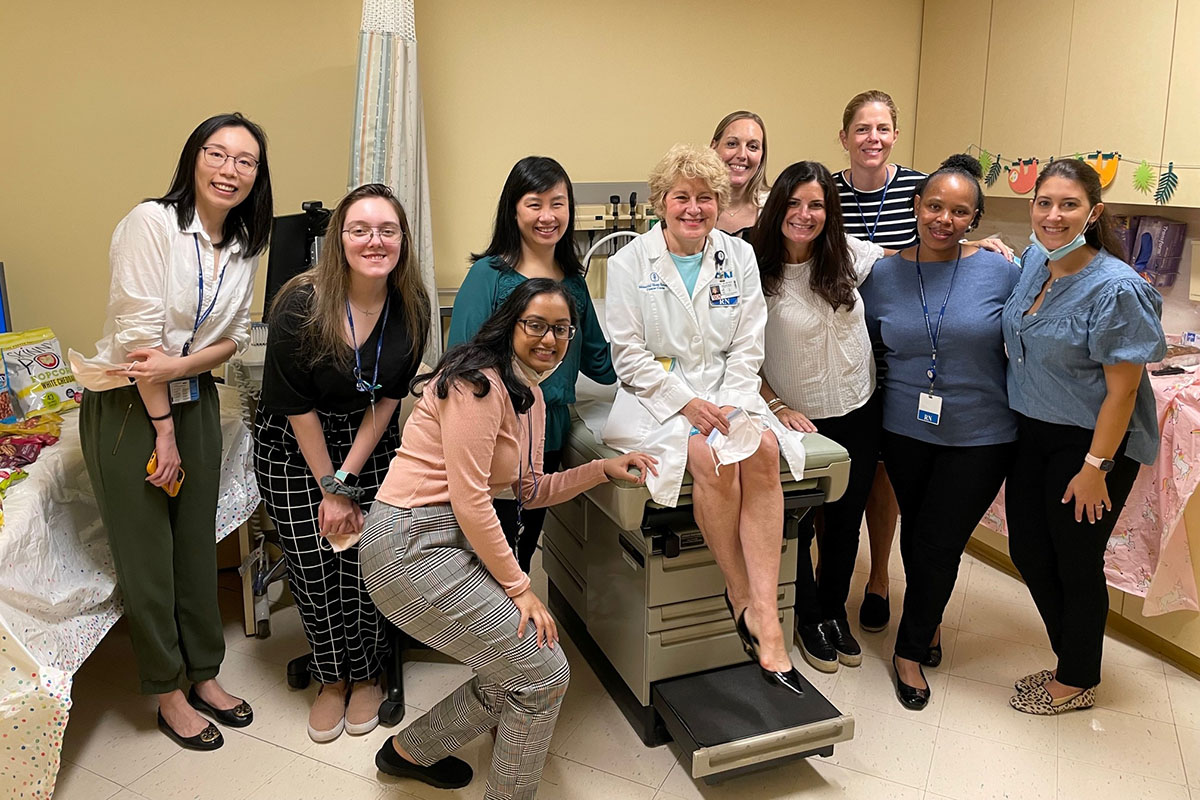
Some children enjoy playing with blocks, dolls, and toy cars. Dr. Ying Liu, a gynecologic medical oncologist and attending in the Clinical Genetics Service at Memorial Sloan Kettering, was fascinated by the test tubes in her mother’s laboratory. Dr. Liu didn’t know it then, but holding those sleek glass cylinders was the same as looking into a crystal ball.

Dr. Liu’s connection to science runs deep. Her parents met as students at The Tongji Medical College in Wuhan, China. She was born at the school’s hospital.
When Dr. Liu was aged 3, her father immigrated to the U.S. to pursue a PhD at the University of Alabama at Birmingham. Dr. Liu and her mother soon followed, with the family ultimately settling in Wilmington, North Carolina.
Dr. Liu grew up immersed in both Chinese and American cultures. Her parents spoke only Mandarin to her and her younger sister, while the girls responded in English.
“Growing up, I wanted to fit in, and there weren’t a lot of other Asian kids where we lived in the South,” says Dr. Liu. “It wasn’t until college that I truly appreciated the value of speaking multiple languages.” This appreciation led Dr. Liu to minor in Chinese Language and study abroad in China during college.
A Prescription for Love
Dr. Liu’s destiny to become a doctor was solidified when she was accepted to Duke University School of Medicine.
Dr. Liu knew she wanted to study internal medicine and had an interest in women’s health. But it wasn’t until she rotated through an inpatient oncology unit that she also became passionate about oncology.

“There is not enough awareness around ovarian and uterine cancer,” she says. “I always wanted to work in women’s health, and I felt that oncology was where I belonged.”
Medical school offered Dr. Liu more than a career path. During her first week, Dr. Liu’s orientation group volunteered at a local elementary school. While organizing art supplies, she fell into easy conversation with fellow first-year student Bryan Leppert. They started dating, and a few years later, Bryan proposed to Dr. Liu in that classroom.
Bringing Something “Extra” to MSK
Dr. Liu joined MSK in 2017. Being a part of the clinical genetics service offers her a “different perspective” as an oncologist, allowing her to “think beyond my patient and her cancer, and to encompass the patient’s family and prevention for all types of cancer,” she says.
“Many of my patients have genetic syndromes and are often grateful that I can give them advice on both their cancer and the syndrome for them and their family members,” Dr. Liu explains. “Genetics is a very translational field that ranges from basic science to epidemiology and incorporating that with oncology is very powerful both clinically and for my research interests. It allows me to give something extra to my patients.”

One field of research Dr. Liu is especially interested in is how racial and ethnic disparities affect genetic testing and counseling. Data show that people of color and other underrepresented minorities are less likely to get tested for hereditary cancers or seek out counseling for themselves and their families after receiving a positive result.
Dr. Liu and MSK’s Office of Health Equity are studying this further among ovarian and uterine cancer patients. They also are working to address the gap in genetic testing and counseling and helping to improve outcomes for these populations.
Balancing Work and Life in the City
In her spare time, Dr. Liu loves cooking and trying new foods. She often brings dishes to clinic to share with colleagues.
“There is fellowship in food, and for me, it’s a great creative outlet,” she says.
She also enjoys walking around New York City.
“Walking and feeling the bustle of the city helps me clear my mind and re-energize myself,” Dr. Liu says.
Living close to work also allows her to spend time with her family – namely her three children: 5-year-old son, Ethan, and 2-year-old fraternal twins, Cameron and Oliver.
“Being a mom and a physician makes you a good multi-tasker,” she notes. “It’s very hard to achieve ‘work-life balance’ as things always come up. For me, it’s about making sure that you are giving enough to each part of your life. That can be different each day and can evolve.”
The Importance of AANHPI Month
Dr. Liu points out that stereotypes about Asian women persist today, most notably that they are quiet, passive, and don’t complain. She hopes that being a female physician and scientist – as well as a wife and mother – will help dispel this myth and pave the way for other Asian-American women.
“Growing up, I think people expected me to be shy and quiet, but over the years, I’ve learned that I have a voice and like to talk,” she says. “Hopefully, sharing my story will inspire others in the AANHPI community to speak up.”
